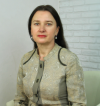References
- Ayzenberg A. Ya. Self-education: history, theory and modern problems. Moscow, 2006. 130 p. (In Russ.)
- Kodzhaspirova G. M. Culture of professional self-education of a teacher. Moscow, 2000. 246 p. (In Russ.)
- Pugacheva S. A., Khismatulina N. V., Malkova T. V. Self-education as a component of continuous education: mechanisms of self-education formation. Modern Science. 2022. No. 4-1. P. 356–358. (In Russ.)
- Rubinstein S. L. Fundamentals of General Psychology. Saint-Petersburg, 2002. 720 p. [Electronic resource]. Electronic data. URL: http://www.nicevt.ru/wp-content/uploads/2019/10/rubinshteynosnovu_obzhey_psc.pdf (date of access 20.12.2024). (In Russ.)
- Ivanishcheva N. A. Self-education in the strategy of professional growth of the teacher of the future. Shkola budushchego [School of the Future]. 2020. No. 3. P. 158‒171. (In Russ.)
- Kuzmina N. V. The subject of acmeology. Saint-Petersburg, 2002. 198 p. (In Russ.)
- Serikov G. N. Self-education: improving student training. Irkutsk, 1991. 232 p. (In Russ.)
- Zmeev S. I. Andragogy: foundations of the theory, history and technology of teaching adults. Moscow, 2007. 272 p. (In Russ.)
- Sukhanov P. V., Nurulin R. N. The structure of self-educational activity of students as a pedagogical problem [Electronic resource]. Sovremennye problemy nauki i obrazovaniya [Modern problems of science and education]. 2016. № 5. P. 87‒93. Electronic data. URL: https://scienceeducation.ru/ru/article/view?id=25225&ysclid=lwt7uc0sp1652441693 (date of access 20.12.2024). (In Russ.)
- Bruner J. Culture of education. Moscow, 2006. 223 p. (In Russ.)
- Nevolina V. V. Professional self-development of a modern student. Strategies and tactics. Moscow, 2024. 203 p. (In Russ.)
- Kotova S. S. Technologies of self-organization and self-development. Yekaterinburg, 2022. 195 p. (In Russ.)
- Khutorskoy A. V. Eidos-pedagogy. Education as self-realization. Moscow, 2023. 67 p. (In Russ.)
- Criteria for assessing the effectiveness of mixed educational technologies used in universities / N. V. Bordovskaya [et al.]. Integraciya obrazovaniya [Integration of education]. 2023. Vol. 27. No. 1. P. 64–81. DOI: 10.15507/1991-9468.110.027.202301.064-081 (In Russ.)
- Kostromina S. N. Psychological Factors of Self-Organization Academic Activity of Students [Electronic resource]. Journal of International Scientific Publications: Educational Alternatives. 2012. Vol. 10. Part 1. P. 187–196. Electronic data. URL: https://www.scientific-publications.net/download/educational-alternatives-2012-1.pdf (date of access 20.12.2024).
- Kushnir M. E., Rabinovich P. D., Zavedensky K. E. Model of Formation of the Educational Profile «Personality Diamond» for the Development of Students' Educational Activity. Integraciya obrazovaniya [Integration of Education]. 2022. Vol. 26. No. 4. P. 637–654. DOI: 10.15507/1991-9468.109.026.202204.637-654 (In Russ.)
- Ivanishcheva N. A., Kochemasova L. A. Self-education as a trend in the paradigm of the culture of knowledge of a student of a pedagogical university. Vestnik Orenburgskogo gosudarstvennogo universiteta [Bulletin of the Orenburg State University]. Electronic scientific journal. 2021. No. 1 (229). P. 22–30. DOI: 10.25198/1814-6457-229-22 (In Russ.)
- Gukalenko O. V., Serikov V. V. Formation of value orientations in students as a strategic goal of Russian education. Cennostnye osnovy razvitiya rossijskogo obrazovaniya: teoriya i praktika [Value foundations of the development of Russian education: theory and practice]. Moscow, 2023. P. 13–27. (In Russ.)
- Nagoeva M. A., Ashkhotova L. A. On the Formation of Students' Self-Educational Skills. Problemy sovremennogo pedagogicheskogo obrazovaniya [Problems of Modern Pedagogical Education]. 2019. No. 64-3. P. 176–178. (In Russ.)
- Levochkina N. A. Youth Quest as a Means of Education and Cultural Communication. Russian Journal of Education and Psychology. 2016. No. 9. P. 55–57. (In Russ.)
- Gladkaya I. V., Okladnikova E. A., Rakhmanova Yu. V., Tsyplakova O. G. Student Scientific Communities: From Student Science to Academic Science. Chelovek i obrazovanie [Man and Education]. 2024. No. 3. P. 71–79. DOI: 10.54884/1815-7041-2024-80-3-71-79 (In Russ.)
- Ivanishcheva N. A., Pak L. G. Strategies for pedagogical support of the teacher of the future in the field of popularization of science. Vestnik Shadrinskogo gosudarstvennogo pedagogicheskogo universiteta [Bulletin of Shadrinsk State Pedagogical University]. 2023. No. 4 (60). P. 88‒93. DOI: 10.52772/25420291_2023_4_88 (In Russ.)
- Konyukhov V. G. On the use of digital technologies to improve the cognitive activity of students. Innovacii. Nauka. Obrazovanie [Innovations. Science. Education]. 2022. No. 51. P. 149–151. (In Russ.)
- Chiu T. Moorhouse B., Chai C., Ismailov M. Teacher support and student motivation to learn with Artificial Intelligence (AI) based chatbot. Interactive Learning Environments. 2023. No. 5. P. 1080–1087. DOI: 10.1080/10494820.2023.2172044
- Sokolova A. S. Network (mutual) learning: features, principles [Electronic resource]. Nauka-RASTUDENT.RU [Science-RASTUDENT.RU]. 2014. No. 7 (07-2014). Electronic data. URL: http://nauka-rastudent.ru/7/1941/ (date of access 10.12.2024). (In Russ.)
- Korotkov A. M., Karpushova O. A., Spiridonova S. B. The method of network blended learning and the experience of its implementation in a pedagogical university. Pedagogika [Pedagogy]. 2024. No. 9. P. 17–27. (In Russ.)
- Levitsky M. L., Osmolovskaya I. M., Tarkhanova I. Yu. New didactic solutions in the context of digital transformation of higher education. Pedagogika [Pedagogy]. 2023. No. 11. 2023. P. 5–14. (In Russ.)
- Morosanova V. I., Kondratyuk N. G. Questionnaire of V. I. Morosanova «Style of self-regulation of behavior ‒ SSPM2020». Voprosy psihologii [Questions of Psychology]. 2020. No. 4. P. 155‒167. (In Russ.)












